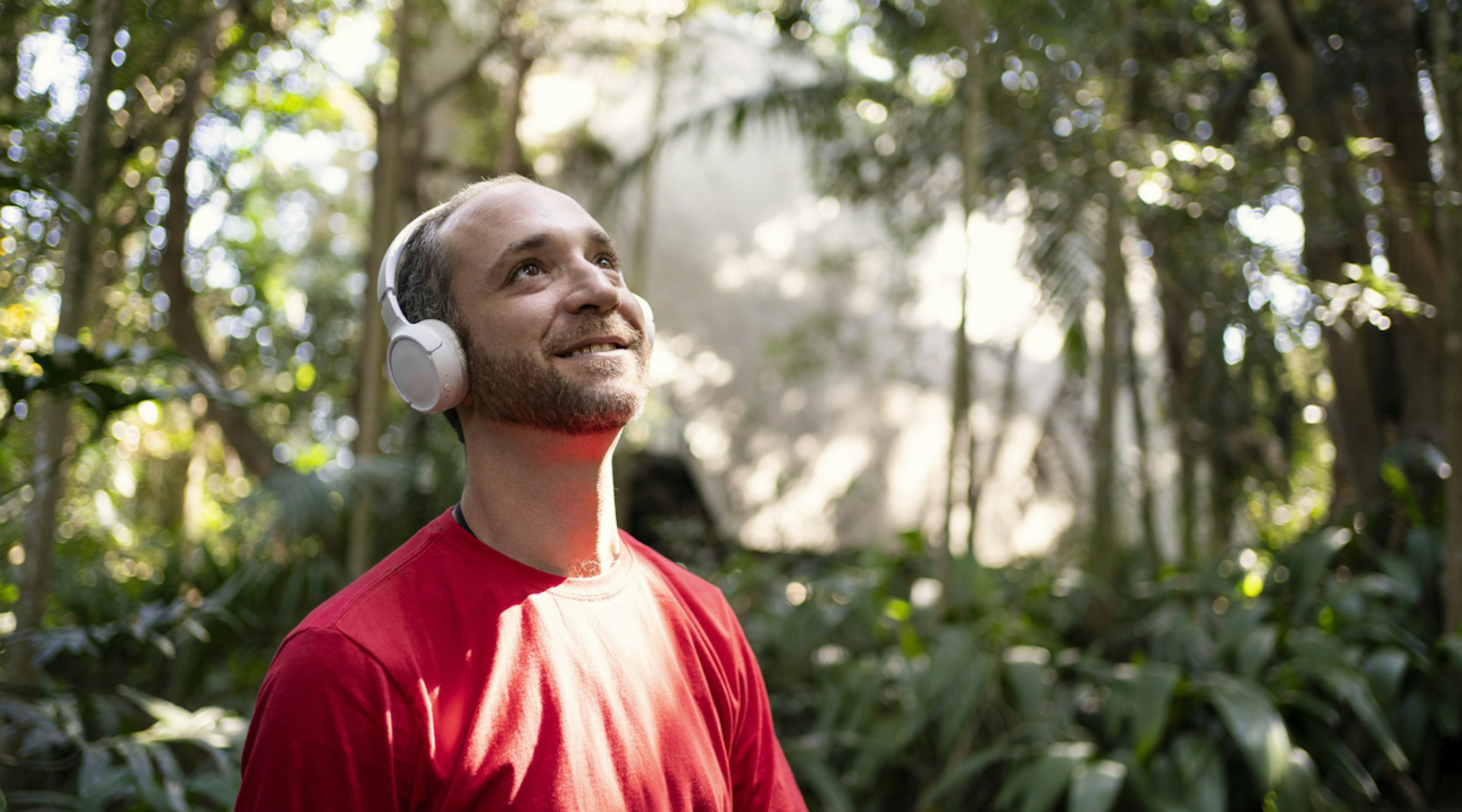World Autism Acceptance Week: Alternative options for adults with autism
7 min read
Sarah Sinclair
To mark World Autism Acceptance Month this April, we’re exploring how cannabis-based treatments can be used to address some of the challenges autistic people face and help them better manage their daily lives.
Contents
Autism awareness: Why it matters
World Autism Acceptance Month runs throughout April 2025, kicking off on World Autism Awareness Day (Wednesday 2 April). The month is dedicated to raising awareness of the challenges autistic people face, with fundraising events held throughout the UK to support these individuals and their families.
More than one in 100 people are autistic, with at least 700,000 autistic adults and children in the UK. Despite the growing awareness of neurodivergence, autistic people continue to experience discrimination and barriers in society, from health and social care to education and employment.
According to the National Autistic Society, eight out of 10 autistic people experience mental health problems, only 26% of autistic pupils are happy in school and only 30% of autistic adults are in employment. The money raised throughout World Autism Acceptance Month will be used to help address some of these challenges.
What is autism?
Autism Spectrum Disorder (ASD) or autism is a type of neurodivergence which affects how people experience and interact with the world. It is something you are born with and is lifelong, but it is not a medical condition or something that needs to be ‘cured’— it just means an individual’s brain works differently from others.
What are the symptoms of autism?
Autism affects everyone differently. This is generally thought of as an autistic spectrum — not just in terms of severity, but each person having a unique combination of characteristics. However, most autistic people will share differences from neurotypical people in how they think, feel and communicate.
According to the NHS, autistic people may:
- find it hard to communicate and interact with other people
- find it hard to understand how other people think or feel
- find things like bright lights or loud noises overwhelming, stressful or uncomfortable
- get anxious or upset about unfamiliar situations and social events
- take longer to understand information
- do or think the same things over and over
Many autistic people struggle with sensory processing — or sensory overload. This is when they have an increased sensitivity to senses such as smell, touch and taste and awareness of internal states, such as hunger and temperature.
How to get an autism diagnosis
To get a diagnosis of autism, a team of specialists must agree that a person has certain characteristics. These present as differences in communication, behaviours and interests, including those mentioned above.
An individual will usually be referred for an autism assessment by their GP or other professional. There are currently long waiting lists for assessments on the NHS, so many people are choosing to explore private healthcare providers, where a referral is not always necessary.
A specialist will ask you to complete a questionnaire, review your medical records and speak to a parent or someone who knew you from childhood, before reaching a decision.
What treatment is best for autism?
The conventional approach to autism treatment is focused on managing the symptoms or challenges an individual experiences, but there is no one-size-fits-all approach.
Typical interventions for adults may include:
- Speech and language therapy
- Occupational therapy
- Talking therapies, such as CBT
- Social skills training
- Medication to help mental health problems and comorbidities e.g. anxiety, depression, and problems sleeping
Autism and medical cannabis
In the UK, medical cannabis is prescribed as an alternative treatment option for autism, when these approaches have not been effective.
Many patients also find this approach helpful in managing some of the common comorbidities that come with autism. These include mental health problems such as anxiety and depression, and poor sleep. Half of autistic adults are also diagnosed with some kind of anxiety disorder, which is one of the most common indications for which CBMPs are prescribed.
There is some early evidence that cannabinoids like CBD and THC may help autistic people. While more clinical trials are needed to better understand this, many autistic people have reported significant benefits in observational studies and real-world data.
One analysis of patient-reported outcomes from the UK found that one month into medical cannabis treatment, autistic patients reported improvements in quality of life while one-third stopped using benzodiazepines. Other research has highlighted the benefits not only for the individual but also for their families and carers.
How does cannabis help autism?
Releaf patient, Brandon, who struggles with chronic anxiety, explained how his life has started to improve since starting medical cannabis treatment:
“I'm on the autistic spectrum and have both Asperger's syndrome and ADHD, so I struggle with a lot of social interactions and picking up on social cues… I think my life has already started to improve now that I've found medical cannabis. I feel like I'm starting to have more confidence; I’m talking to people again and becoming more social and less isolated.”
Peter, a Releaf patient since July 2024, also says medical cannabis helps him better manage his daily life.
“Before, I would fixate on tiny details, things that wouldn’t matter much to neurotypical people but could completely upend my day. Now, I don’t get stuck on them as much… It’s not a cure-all, but for those it helps, it can make a huge difference. It’s helped me a lot with focus, anxiety, and keeping my energy balanced.”
Accessing cannabis treatment for autism
It is always important to seek advice from a healthcare professional when considering new treatments. If you have a diagnosis of autism and are interested in learning more about medical cannabis, Releaf allows you to do this in a safe and supportive environment. All team members who interact with patients at Releaf —from the doctors and nurses to the patient support team—have undertaken Autism Awareness Training.
Next steps
Releaf’s free eligibility checker will help determine if medical cannabis is appropriate and if so, you will be invited to schedule an appointment with a specialist consultant. Medical cannabis is a very personalised medicine, and you will have the opportunity to discuss your specific needs with the consultant who will guide you through the next steps. You can learn more about medical cannabis via the FAQs page or by contacting a member of the team.
Share article
Did you like this article?
It is important to seek medical advice before starting any new treatments. The patient advisors at Releaf are available to provide expert advice and support. Alternatively, click here to book a consultation with one of our specialist doctors.
Elevate your wellness with medical cannabis
Get comprehensive care, convenience, and confidence with an all-in-one treatment plan.
Am I eligible?Authors
Sarah, a distinguished journalist with over a decade in publishing and communications, now excels in cannabis health and policy journalism in the UK, advocating for informed health decisions through her award-winning work.
Editorial Policy
All of our articles are written by medical cannabis experts, guided by strict sourcing guidelines, and reference peer-reviewed studies and credible academic research. Our expert clinical team and compliance specialists provide valuable insights to ensure accuracy when required. Learn more in our editorial policy.
Need more help?










